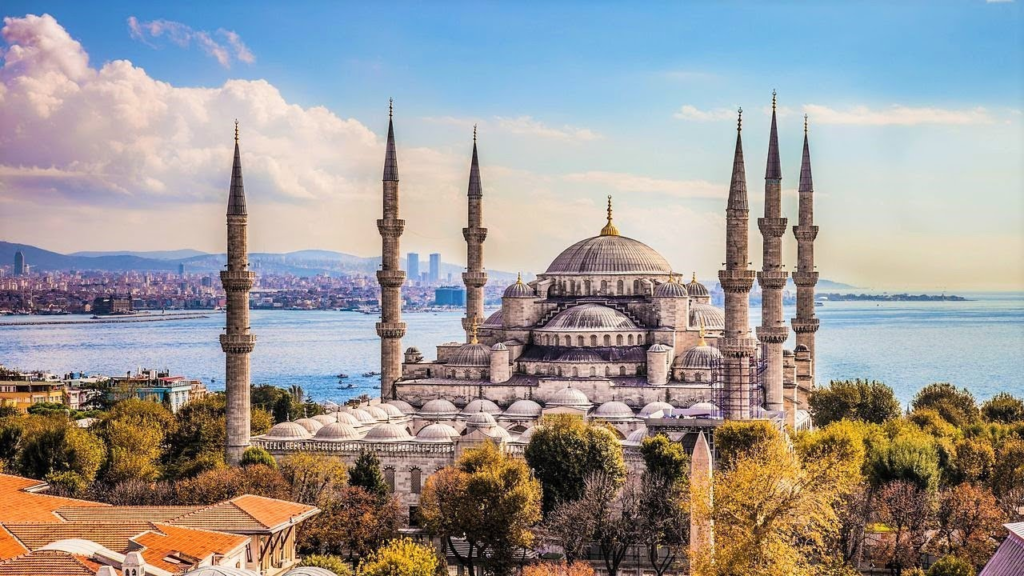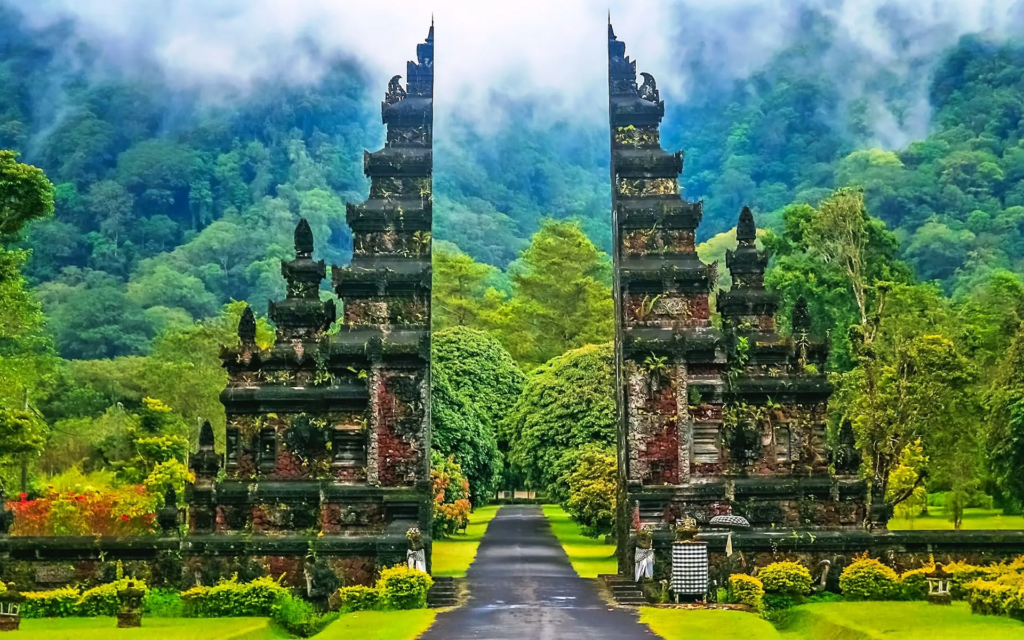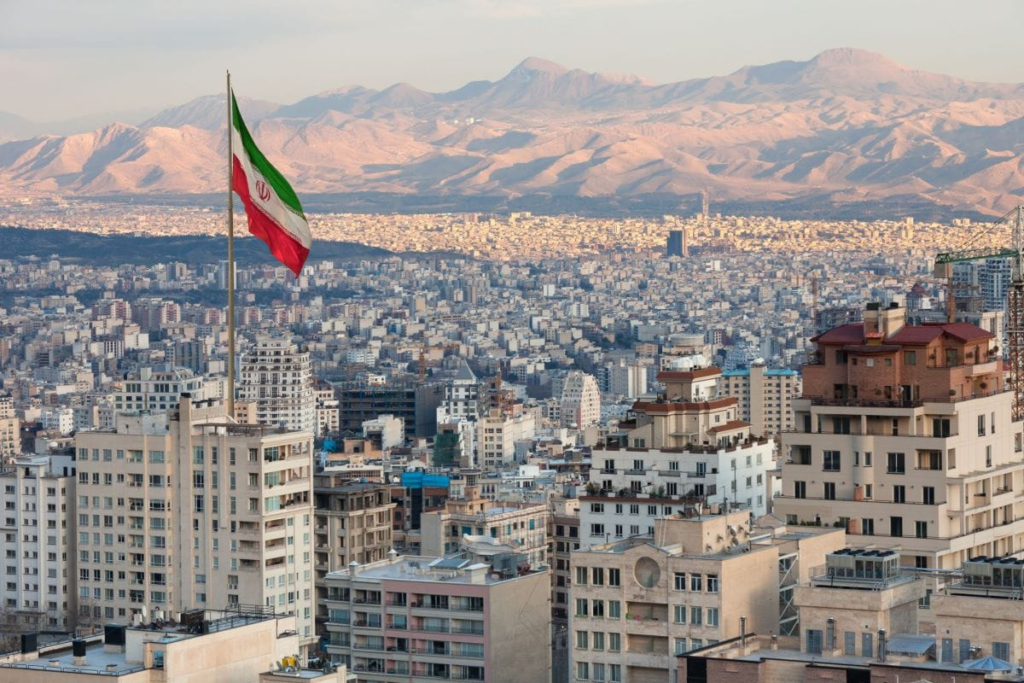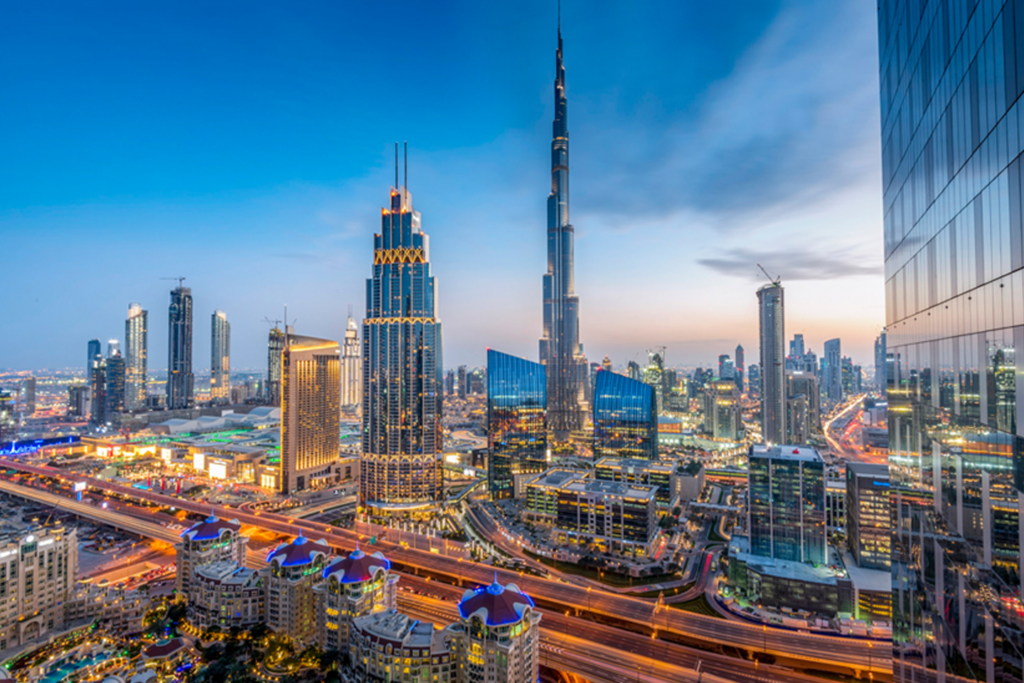When assessing the power and influence of Muslim-majority nations, factors such as military strength, economic prowess, political influence, and technological advancements are crucial. Each of the countries listed here has carved a significant role for itself on the global stage through its unique strengths. From nuclear capabilities to massive defense budgets, these nations are driving forces not only in the Muslim world but also in international affairs.
1. Turkey
Turkey stands out as the most powerful Muslim countries in 2024, with a weighted average rank of 5.2 based on various global metrics. Its military strength is formidable, supported by NATO membership and a rapidly growing defense industry. Between 2014 and 2023, Turkey nearly tripled its defense exports, propelling it to 11th place globally in this sector. This growth in defense capabilities, coupled with Turkey’s strategic position straddling Europe and Asia, makes it a key player in regional and global politics.

On the economic front, Turkey continues to experience impressive growth. The country’s GDP grew by 5.7% year-on-year in the first quarter of 2024, driven by increased industrial output and foreign investments. Turkey’s combination of military might and economic resilience places it firmly at the top of the list of the most powerful Muslim countries in the world.
2. Saudi Arabia
Saudi Arabia is a dominant player in both the Muslim world and the global arena, primarily due to its immense wealth derived from oil reserves. The Saudi Arabian Armed Forces (SAAF) are one of the best-funded military forces globally, supported by the sixth-largest defense budget in the world. This financial muscle allows the SAAF to maintain advanced military capabilities across all branches, including the Royal Saudi Army, Navy, Air Force, and Strategic Missile Force.

Politically, Saudi Arabia wields significant influence, especially in the Middle East and within organizations like the Gulf Cooperation Council (GCC) and the Organization of Islamic Cooperation (OIC). Under the leadership of the King, who serves as the Supreme Commander-in-Chief, Saudi Arabia’s military and political strategies continue to shape regional security and diplomacy.
3. Pakistan
Pakistan holds a unique position as the only Muslim-majority country with nuclear capabilities, making it a key player in South Asia’s strategic balance. Its military is one of the largest in the world, ranking sixth in terms of active personnel. The Pakistan Armed Forces consist of three main branches: the Army, Navy, and Air Force, which are supported by several paramilitary units like the Rangers. Pakistan’s nuclear assets are managed by the Strategic Plans Division Force, a vital component of its national security strategy.

In addition to its military strength, Pakistan plays a strategic role in South Asia, particularly in relation to India, Afghanistan, and China. Its location along vital trade routes and its participation in regional security frameworks, such as the Shanghai Cooperation Organisation (SCO), further elevate its geopolitical importance.
4. Indonesia
Indonesia, the largest Muslim-majority country by population, boasts a growing economy and increasing regional influence in Southeast Asia. The World Bank projects that Indonesia’s economy will grow at an average rate of 5.1% annually from 2024 to 2026, driven by robust consumer demand, public infrastructure investments, and rising business activity.

Indonesia’s political and economic stability makes it a key player in regional affairs, particularly within the Association of Southeast Asian Nations (ASEAN). Its significant population and economic potential give it a prominent voice in global discussions on trade, climate change, and human rights.
5. Iran
Despite enduring years of international sanctions, Iran remains a military powerhouse in the Middle East. As of 2024, the Iranian Armed Forces are the second largest in the region in terms of active personnel, with approximately 425,000 members and an additional 100,000 reserves. Iran’s military capabilities include a diverse range of conventional and asymmetric assets, including ballistic missile programs and influence over proxy groups in Iraq, Syria, Lebanon, and Yemen.

Iran’s strategic importance is further amplified by its control over key maritime chokepoints, like the Strait of Hormuz, through which a significant portion of the world’s oil supply passes. The country’s political and military reach extends beyond its borders, making it a central figure in Middle Eastern geopolitics.
6. United Arab Emirates (UAE)
Despite its small population, the United Arab Emirates (UAE) has emerged as a global powerhouse, leveraging its economic and technological advancements. The UAE ranks 10th in the Global Competitiveness Report 2023, showcasing its strong economic position and infrastructure development. The country plays a significant role in global affairs, serving as the chair of COP28 and leading ambitious projects in space exploration, including a successful Mars mission.

The UAE’s military capabilities, although smaller than those of countries like Saudi Arabia or Turkey, are highly advanced and well-funded. In addition, the UAE wields considerable diplomatic influence, reflected in its top ranking in the Global Passport Power Rank Index 2023. This combination of economic, technological, and political power ensures the UAE’s place among the most powerful Muslim countries in the world.
Each of these countries contributes uniquely to the strength and influence of the Muslim world on the global stage. Whether through military might, economic growth, or political diplomacy, these nations are key players in shaping the future of their regions and the broader global community. From Turkey’s expanding defense sector to Indonesia’s rising economic power, the Muslim world continues to grow in its global significance.

